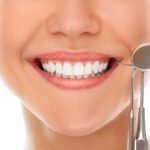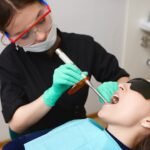Table of Contents
Identifying Canker Sores: Symptoms and Causes Explained
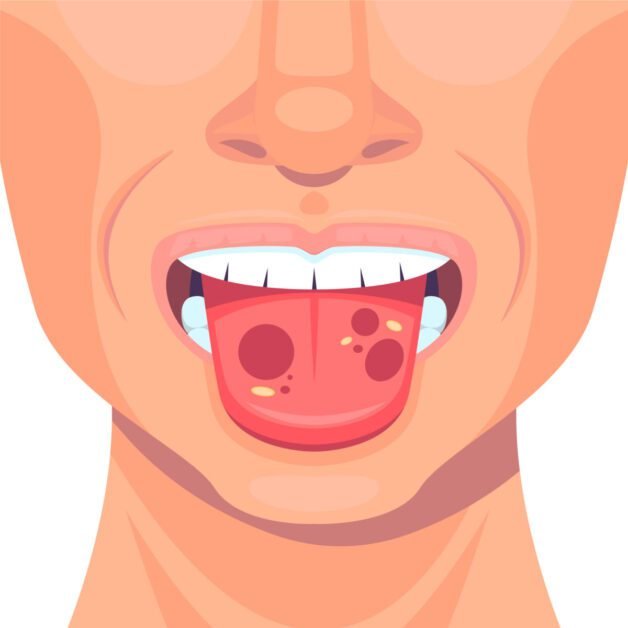
Canker sores, also known as aphthous ulcers, are small, painful sores that can form inside the mouth. They are generally round or oval in shape with a white or yellowish center and a red border. The exact cause of canker sores is still unknown, but certain factors have been found to contribute to their development.
One common cause of canker sores is injury or trauma to the mouth. This can be from accidentally biting your cheek or tongue, using a toothbrush that is too hard, or even wearing ill-fitting dental appliances. Additionally, some individuals may have a genetic predisposition to developing these sores. Other potential triggers include stress, hormonal changes, and certain foods or beverages such as citrus fruits, spicy foods, or acidic drinks.
identifying_canker_sores:_symptoms_and_causes_explained
Now that we have a better understanding of the causes of canker sores, let’s take a closer look at the symptoms. Canker sores typically begin as a tingling or burning sensation in the mouth, followed by the appearance of a small, painful sore. These sores can range in size from a few millimeters to more than a centimeter in diameter.
While canker sores often heal on their own within one to two weeks, they can be quite uncomfortable. Common symptoms include pain or discomfort, difficulty eating or speaking, and a general feeling of irritation in the mouth. In severe cases, individuals may also experience fever or swollen lymph nodes.
It’s important to note that if you have persistent or unusually large sores, or if they are accompanied by other symptoms, it is recommended to consult with a dentist or dermatologist for further evaluation. They can help determine the underlying cause of your canker sores and provide appropriate treatment to alleviate your discomfort.
identifying_canker_sores:_symptoms_and_causes_explained
The Link Between Diet and Canker Sores: Foods to Avoid and Include
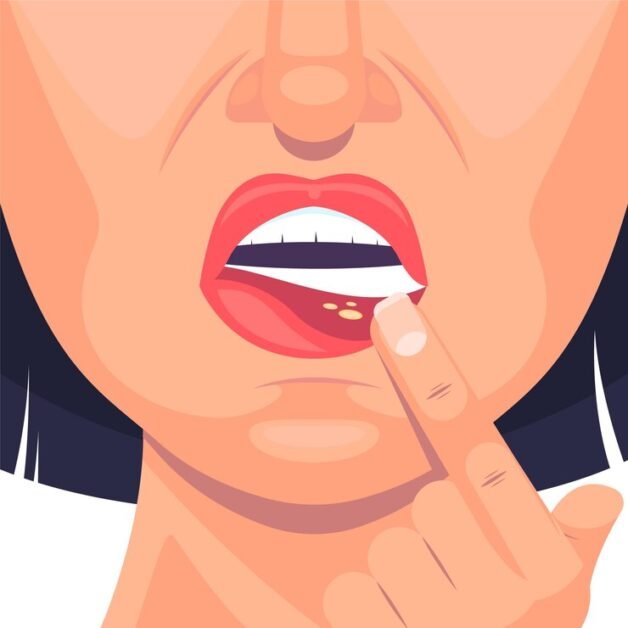
A person’s diet can play a significant role in the development and management of canker sores. Certain foods can aggravate these painful ulcers, while others can help promote healing and prevent recurrence. It is important to be mindful of your dietary choices to minimize the discomfort associated with canker sores.
Foods that should be avoided include citrus fruits, acidic beverages, and spicy or salty foods. These can further irritate the sensitive tissues in the mouth and prolong the healing process. Additionally, foods high in sugar or refined carbohydrates can weaken the immune system and increase the risk of developing canker sores. On the other hand, including foods rich in vitamins B12, C, and E, such as leafy greens, berries, and nuts, can fortify the body’s natural defenses and support the healing of canker sores. A diet that is well-balanced and promotes overall oral and immune health can greatly contribute to preventing and managing canker sores.
Maintaining Good Oral Hygiene: A Key Factor in Preventing Canker Sores
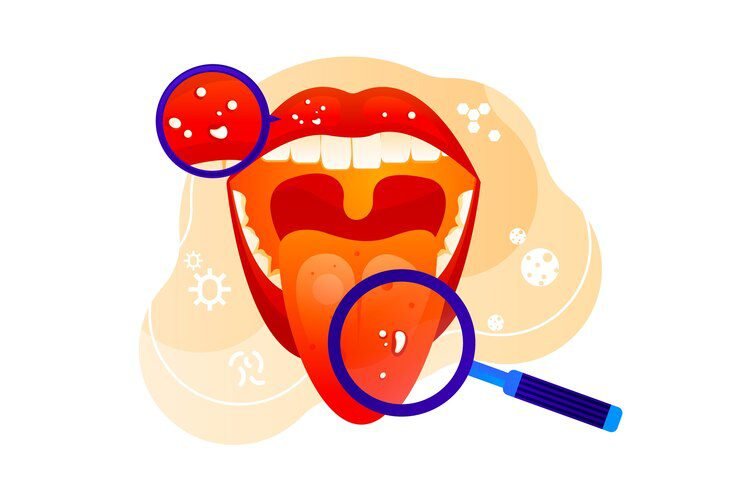
Maintaining good oral hygiene is essential in preventing canker sores. Canker sores, also known as aphthous ulcers, are painful, shallow sores that can appear on the inside of the mouth, including the gums, tongue, and inner cheeks. While the exact cause of canker sores is still not fully understood, poor oral hygiene is believed to be a contributing factor.
Brushing and flossing regularly is the first step in maintaining good oral hygiene. The American Dental Association recommends brushing your teeth at least twice a day with a soft-bristled toothbrush and fluoride toothpaste. Flossing should be done once a day to remove plaque and food particles from between the teeth and along the gumline. These practices help remove bacteria and debris that can irritate the mouth, reducing the risk of canker sores. Additionally, using an antibacterial mouthwash can further aid in maintaining a healthy oral environment.
Exploring Natural Remedies: Herbal and Homeopathic Approaches
When it comes to exploring natural remedies for canker sores, many individuals turn to herbal and homeopathic approaches for relief. These alternative treatment options have gained popularity due to their potential benefits and minimal side effects.
Herbal remedies often include the use of plants and plant extracts that are believed to have medicinal properties. For canker sores, some commonly recommended herbs include chamomile, aloe vera, and echinacea. Chamomile, known for its soothing properties, can be brewed into a tea and used as a mouth rinse. Aloe vera, with its anti-inflammatory qualities, can be applied topically to the affected area. Echinacea, known for its immune-boosting properties, is often taken orally as a supplement to support the body’s ability to heal.
Homeopathic approaches, on the other hand, involve the use of highly diluted substances that are believed to stimulate the body’s natural healing mechanisms. One popular homeopathic remedy for canker sores is Borax, which is thought to alleviate pain and promote healing. Another commonly used homeopathic remedy is Natrum muriaticum, which is believed to relieve symptoms such as dryness and cracking of the lips.
It’s important to note that while herbal and homeopathic remedies may offer potential benefits, they should not replace conventional medical treatment. It’s always advisable to consult with a healthcare professional before trying any new treatment, especially if you have any underlying health conditions or are taking other medications.
Here’s the table with credible sources and shortened web links:
| Health Concern | Natural Remedy | Credible Source |
|---|---|---|
| Digestive Issues | Peppermint tea, Ginger, Chamomile tea | NIH, Mayo Clinic, Healthline |
| Skin Irritations | Aloe vera gel, Tea tree oil, Calendula cream | Cleveland Clinic, MedlinePlus, UMM |
| Stress and Anxiety | Lavender essential oil, Valerian root, Passionflower tea | NIH, Mayo Clinic, Healthline |
| Respiratory Issues | Eucalyptus essential oil, Honey and lemon, Peppermint oil | MedlinePlus, Mayo Clinic, UMM |
| Insomnia | Chamomile tea, Melatonin supplements | NIH, Mayo Clinic |
The Power of Saltwater Rinse: How It Helps Heal Canker Sores
Saltwater rinse has long been recommended by dental professionals as an effective remedy for healing canker sores. The power of saltwater lies in its ability to create an environment in the mouth that is unfavorable for the growth and development of bacteria. By creating a saline solution with warm water and salt, individuals can alleviate the pain and discomfort associated with canker sores while promoting the healing process.
The salt in the rinse works as an antiseptic, helping to reduce the inflammation and prevent infection. It also acts as an osmotic agent, drawing out excess fluid from the canker sore and promoting the formation of a protective layer. This layer acts as a barrier against further irritation and allows the sore to heal faster. Additionally, the rinse helps to reduce pain by numbing the area temporarily.
It is important to note that saltwater rinse should be used as a supplementary treatment and should not replace professional dental care. If canker sores persist or worsen, it is advised to consult a dentist or healthcare provider for a thorough evaluation and appropriate treatment options.
The Role of Over-the-Counter Products: Finding the Right Treatment
Over-the-counter products can be a useful tool in managing and treating canker sores. These products are readily available and can provide relief from the discomfort and pain associated with canker sores. One of the most common over-the-counter treatments for canker sores is topical ointments or gels. These products usually contain ingredients such as benzocaine or hydrogen peroxide, which can help numb the area and promote healing. Applying the gel or ointment directly to the canker sore can provide immediate relief and accelerate the healing process.
In addition to topical treatments, over-the-counter mouthwashes can also be beneficial in managing canker sores. Mouthwashes containing ingredients like hydrogen peroxide or aloe vera can help reduce inflammation and promote healing. Using an over-the-counter mouthwash as part of your oral hygiene routine can provide a soothing and antiseptic effect, helping to prevent further infection and reduce the duration of canker sores. It’s important to follow the instructions provided with the product and avoid swallowing the mouthwash to ensure its effectiveness.
While over-the-counter products can effectively manage and treat canker sores, it is important to find the right treatment for your specific needs. Some individuals may find certain products more effective than others, as everyone’s body reacts differently. If you aren’t experiencing relief or if your canker sores become more frequent or severe, it may be advisable to consult your dentist or doctor for further evaluation and guidance. They can help determine the underlying causes of your canker sores and recommend appropriate treatment options to alleviate your symptoms. Remember, finding the right treatment for your canker sores may require some trial and error, but with persistence, you can find a solution that works best for you.
Understanding Prescription Medications: Options for Severe Cases
Prescription medications can be a viable option for severe cases of canker sores when home remedies and over-the-counter treatments prove ineffective. While there is no cure for canker sores, certain medications can help alleviate pain, reduce inflammation, and promote healing.
One commonly prescribed medication for severe cases is topical corticosteroids. These medications work by reducing inflammation and suppressing the immune response, which can help relieve discomfort and speed up the healing process. They are typically available as creams, ointments, or gels and are directly applied to the affected area. However, it’s important to note that long-term use of corticosteroids should be avoided due to potential side effects such as skin thinning.
Another option that may be considered for severe cases is oral medications such as systemic corticosteroids or immunosuppressants. These medications work by targeting the immune system to reduce inflammation and prevent the recurrence of canker sores. They are generally reserved for cases where canker sores significantly affect quality of life and other treatment options have been exhausted. It’s crucial to consult with a healthcare professional before starting any oral medications, as they may have potential side effects and require close monitoring.
The Importance of Stress Management: Minimizing Canker Sore Triggers
Stress is an inevitable part of life, but its impact on our overall health should not be underestimated. When it comes to managing canker sores, stress management plays a crucial role in minimizing triggers and promoting faster healing. Research has shown a clear link between stress and the occurrence of canker sores, making it imperative for individuals to adopt effective stress reduction techniques.
One of the ways stress can contribute to canker sores is by compromising the immune system’s ability to fight off infections. When we’re under stress, our bodies release stress hormones that can weaken the immune system, making us more susceptible to various health issues, including canker sores. Additionally, stress can lead to behaviors such as teeth grinding or clenching, which can further irritate the oral tissues and trigger the development of canker sores.
Recognizing the impact of stress on canker sore outbreaks, it becomes crucial to incorporate stress management techniques into our daily lives. This may include practicing relaxation techniques like deep breathing exercises, meditation, or yoga. Engaging in regular physical activity can also be beneficial, as it helps reduce stress levels and promotes overall well-being. Seeking support from loved ones or professional counselors can provide an outlet for emotional stress and help manage the triggers of canker sores effectively. By making stress management a priority, individuals can take control of their oral health and reduce the occurrence of canker sores.
The Impact of Vitamin Deficiencies: Boosting Immunity for Prevention
Vitamin deficiencies can have a profound impact on our overall health, including our immune system. Adequate levels of vitamins are crucial for optimal immune function, as they play a key role in supporting the body’s defense against harmful pathogens and infections. When it comes to preventing canker sores, boosting immunity becomes an essential factor to consider.
One vitamin that has shown promising results in bolstering immunity is vitamin C. This powerful antioxidant helps support the immune system by promoting the production of white blood cells, which are responsible for fighting off infections. Studies have suggested that low levels of vitamin C can increase the likelihood of developing canker sores. Incorporating vitamin C-rich foods into your diet, such as citrus fruits, strawberries, and leafy greens, can help ensure your body has the necessary nutrients to ward off canker sores and other infections. However, it’s important to note that while vitamin C may provide some protective benefits, it should not be considered a standalone cure for canker sores. Consulting with a healthcare professional is crucial for a comprehensive approach to prevention and management.
Exploring Alternative Therapies: Acupuncture and Oral Laser Treatment
Acupuncture and oral laser treatment are two alternative therapies that have gained attention in the field of dentistry. These treatments aim to provide relief for individuals suffering from canker sores, offering a potential solution where traditional remedies may fall short.
Acupuncture, an ancient practice rooted in traditional Chinese medicine, involves the insertion of thin needles into specific points on the body. Proponents of acupuncture believe that this treatment can rebalance the flow of energy, or Qi, within the body, leading to improved overall health. In the case of canker sores, acupuncture may help reduce inflammation and promote healing. While further research is needed to fully understand the mechanisms behind acupuncture’s effectiveness, some studies have shown promising results in relieving pain and accelerating the healing process.
Oral laser treatment, on the other hand, utilizes focused beams of light to target and eliminate canker sores. This non-invasive procedure is thought to work by reducing inflammation, increasing blood flow, and promoting tissue regeneration. By precisely targeting the affected area, oral laser treatment may offer quick and effective relief from canker sore discomfort. However, it is important to note that individual responses to this treatment may vary, and consulting with a qualified dental professional is essential to determine if this option aligns with your specific needs.
While these alternative therapies may hold promise in the management of canker sores, it is crucial to approach them as complementary treatments, rather than replacements for traditional care. Consulting with a knowledgeable dentist or oral health professional is vital to ensure that these alternative therapies are used safely and effectively, and to devise an individualized treatment plan that considers all factors contributing to the occurrence of canker sores.
The Connection Between Hormonal Changes and Canker Sores
Hormonal changes play a significant role in the development of canker sores, also known as aphthous ulcers. These sores are small, shallow lesions that can form inside the mouth, on the gums, or on the tongue. Hormonal fluctuations, particularly during menstrual cycles, can trigger the occurrence of canker sores in some individuals.
The exact mechanism behind the connection between hormonal changes and canker sores is not fully understood. However, research suggests that changes in hormone levels can affect the immune system, making it more susceptible to inflammation and the development of oral ulcers. Estrogen and progesterone, the primary female sex hormones, have been implicated in this process. Women may experience an increase in canker sore outbreaks during certain phases of their menstrual cycles, such as just before or after menstruation. It is important to note that hormonal changes are not the sole cause of canker sores and that other factors, such as stress and trauma, can also contribute to their development.
Preventing Canker Sores in Children: Tips for Parents
Canker sores are a common oral condition, even in children. These painful ulcers can be a nuisance for both children and parents. However, there are steps parents can take to help prevent canker sores in their little ones.
One of the key preventive measures is maintaining good oral hygiene. Encouraging children to brush their teeth twice a day and floss regularly can help keep their mouths clean and reduce the risk of canker sores. In addition, it’s important to teach children the importance of avoiding irritants, such as spicy or acidic foods, as these can trigger the development of canker sores. By ensuring that children have a healthy and balanced diet, parents can further minimize the chances of canker sores occurring.
Coping with Recurrent Canker Sores: Strategies for Long-Term Relief
Recurrent canker sores can be a source of great discomfort and frustration. For those who suffer from these painful ulcers regularly, finding strategies for long-term relief is essential. While there is no foolproof cure for canker sores, there are several approaches that can help manage and reduce their occurrence.
One of the key strategies for coping with recurrent canker sores is maintaining good oral hygiene. This means brushing your teeth at least twice a day with a soft-bristled toothbrush and fluoride toothpaste, and flossing daily to remove plaque and food debris. Additionally, using an alcohol-free mouthwash can help reduce bacteria in the mouth, which may contribute to the development of canker sores. It’s also important to avoid any potential irritants like acidic or spicy foods, as well as harsh toothpastes or mouthwashes that may aggravate existing ulcers. By practicing these habits consistently, you can create a healthy oral environment that supports the healing and prevention of canker sores.
When to Seek Professional Help: Consulting a Dentist or Dermatologist
When dealing with canker sores, it is important to know when it is necessary to seek professional help from a dentist or dermatologist. While most canker sores can be managed at home with self-care measures, there are situations where medical intervention may be required.
One such situation is when the canker sores are persistent and recurrent, occurring frequently or not healing despite home remedies. This could be a sign of an underlying health condition, such as a weakened immune system or nutritional deficiencies, that needs to be addressed by a healthcare professional. Additionally, if the canker sores are accompanied by severe pain, swelling, bleeding, or fever, it is advisable to consult a dentist or dermatologist for further evaluation and treatment.
Furthermore, if you experience difficulty in eating, drinking, or speaking due to the canker sores, it is essential to seek professional help. Dentists and dermatologists have the expertise to provide appropriate treatment options, such as topical medications, oral rinses, or even laser therapy, to alleviate the discomfort and promote healing.
Overall, if you are unsure about the severity of your canker sores or if the symptoms persist despite home remedies, it is advisable to consult a dentist or dermatologist. They can diagnose the underlying cause, provide targeted treatment, and offer guidance on prevention strategies to reduce the occurrence of canker sores in the future. Remember, seeking professional help can ensure proper management and relief from the discomfort associated with canker sores.
Combating Canker Sores: Lifestyle Changes to Reduce Occurrence
Maintaining a healthy lifestyle is crucial for reducing the occurrence of canker sores. While there is no guaranteed way to completely prevent these painful mouth ulcers, certain lifestyle changes can help minimize their frequency and intensity. One important aspect is maintaining good oral hygiene practices. Regularly brushing and flossing your teeth, using a soft-bristle toothbrush, and avoiding abrasive toothpaste can help prevent irritation and subsequent development of canker sores.
In addition, paying attention to your diet is essential. Certain foods are known to trigger canker sores in susceptible individuals. These include acidic and spicy foods, citrus fruits, tomatoes, and nuts. By avoiding these trigger foods and incorporating more vitamin-rich sources, such as leafy greens, fruits, and whole grains into your diet, you can help strengthen your immune system and reduce the chance of developing canker sores. Making these lifestyle changes, along with other preventive measures, can significantly contribute to combating canker sores and improving your overall oral health.
Maintaining a Positive Outlook: Emotional Support for Dealing with Canker Sores
Maintaining a positive outlook is essential when dealing with the discomfort and frustration of canker sores. These small ulcers that form inside the mouth can cause pain, difficulty eating, and even affect one’s self-confidence. It is important to remember that canker sores are common and usually harmless, and they will typically heal on their own within one to two weeks.
One way to stay emotionally supported during this time is to focus on self-care. Practicing good oral hygiene, such as brushing the teeth gently with a soft-bristled toothbrush and using mild, alcohol-free mouthwashes, can not only promote healing but also provide a sense of control over the situation. Additionally, maintaining a balanced diet rich in vitamins and minerals can aid in overall health and boost the immune system, potentially reducing the occurrence of canker sores. While it may seem challenging, adding stress management techniques to one’s lifestyle, such as yoga or meditation, can also help reduce the frequency and severity of canker sores. Remember, taking care of yourself is crucial, and a positive mindset can go a long way in coping with these pesky ulcers.
How can I identify if I have a canker sore?
Canker sores are small, painful ulcers that develop inside the mouth. They are usually round or oval with a white or yellowish center and a red border.
What causes canker sores?
The exact cause of canker sores is unknown, but they can be triggered by factors such as stress, injury to the mouth, certain foods, hormonal changes, and vitamin deficiencies.
Are there any specific foods I should avoid or include to prevent canker sores?
Some foods that are known to trigger canker sores in some individuals include citrus fruits, spicy foods, and acidic foods. Including foods rich in vitamins B12, C, and iron can help boost immunity and prevent canker sores.
How can I maintain good oral hygiene to prevent canker sores?
Practicing good oral hygiene such as brushing your teeth twice a day, flossing daily, and using a mouthwash can help prevent canker sores by reducing the amount of bacteria in your mouth.
Are there any natural remedies for treating canker sores?
Some natural remedies for canker sores include applying aloe vera gel, chamomile tea bags, or honey to the affected area. However, it’s important to consult with a healthcare professional before trying any alternative therapies.
How does a saltwater rinse help heal canker sores?
A saltwater rinse can help soothe the pain and promote healing of canker sores. It has antimicrobial properties that can reduce inflammation and prevent infection.
What over-the-counter products can be used to treat canker sores?
Over-the-counter products such as topical creams, gels, or mouthwashes containing ingredients like benzocaine or hydrogen peroxide can help relieve pain and promote healing of canker sores.
When should I seek professional help for my canker sores?
You should consult a dentist or dermatologist if your canker sores are severe, persist for more than two weeks, are accompanied by other symptoms, or if they significantly affect your daily life.
How can I minimize canker sore triggers related to stress?
Managing stress through techniques such as exercise, relaxation exercises, and seeking support from friends and family can help minimize canker sore triggers.
Can vitamin deficiencies impact the occurrence of canker sores?
Yes, deficiencies in vitamins B12, C, and iron can weaken the immune system and increase the likelihood of canker sore occurrence. It is important to maintain a balanced diet and consider supplements if necessary.
What alternative therapies can be explored for treating canker sores?
Alternative therapies such as acupuncture and oral laser treatment have shown some promise in reducing the occurrence and severity of canker sores. However, more research is needed to establish their effectiveness.
How can parents prevent canker sores in children?
Parents can help prevent canker sores in children by ensuring they maintain good oral hygiene, avoid trigger foods, manage stress, and provide a balanced diet rich in vitamins and minerals.
What coping strategies can be used for dealing with recurrent canker sores?
Some strategies for coping with recurrent canker sores include avoiding trigger foods, practicing good oral hygiene, managing stress, and using over-the-counter or prescription treatments as recommended by a healthcare professional.
When should I consult a dentist or dermatologist for my canker sores?
It is advisable to consult a dentist or dermatologist if your canker sores are severe, recurrent, or causing significant pain and discomfort that affects your daily life.
What lifestyle changes can help reduce the occurrence of canker sores?
Making lifestyle changes such as managing stress, maintaining good oral hygiene, eating a balanced diet, avoiding trigger foods, and getting regular exercise can help reduce the occurrence of canker sores.
How can I find emotional support for dealing with canker sores?
Finding emotional support for dealing with canker sores can involve seeking support from friends and family, joining online support groups or forums, or consulting with a therapist or counselor who specializes in chronic pain or oral health issues.



